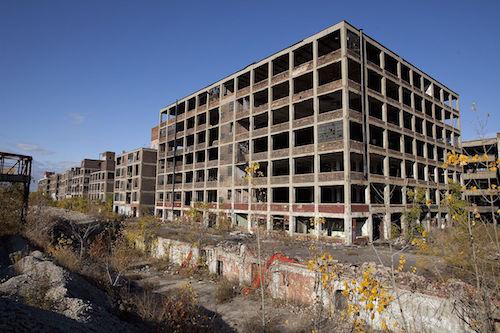Remember, Detroit!

Will the UAW Devour Tesla like it did GM?
By Olivia Grady
On February 9, 2017, Jose Moran, a Tesla production worker in Fremont, California, published an online article titled “Time for Tesla to Listen.” In this article, he describes alleged poor working conditions and low pay at his plant:
Many of us have been talking about unionizing, and have reached out to the United Auto Workers for support. The company has begun to respond. In November, they offered a raise to employees’ base pay — the first we’ve seen in a very long time.
But at the same time, management actions are feeding workers’ fears about speaking out. Recently, every worker was required to sign a confidentiality policy that threatens consequences if we exercise our right to speak out about wages and working conditions. Thankfully, five members of the California State Assembly have written a letter to Tesla questioning the policy and calling for a retraction.
I’m glad that someone is standing up for Tesla workers, and we need to stand up for ourselves too. The issues go much deeper than just fair pay. Injuries, poor morale, unfair promotions, high turnover, and other issues aren’t just bad for workers — they also impact the quality and speed of production. They can’t be resolved without workers having a voice and being included in the process.
His solution is forming a United Auto Workers (UAW) local chapter.
Tesla Founder and current CEO Elon Musk responded to Moran’s claims in a message to the online tech website Gizmodo. He wrote that Tesla pays a higher starting wage than unionized companies. He also questioned Moran’s loyalties:
“Our understanding is that this guy was paid by the UAW to join Tesla and agitate for a union. He doesn’t really work for us, he works for the UAW,” Musk wrote. He added in a separate response, “Frankly, I find this attack to be morally outrageous. Tesla is the last car company left in California, because costs are so high. The UAW killed NUMMI and abandoned the workers at our Fremont plant in 2010. They have no leg to stand on.”
In his post, Jose Moran also claimed that Tesla forced workers to sign a confidentiality agreement to stop workers from talking about wages and working conditions.
In response, California State Assembly members Tony Thurmond, Bill Quirk, Kansen Chu, Rob Bonta and Ash Kalra, all Democrats, wrote an open letter to Musk on January 10th saying that the confidentiality agreement Moran wrote about needed to be revised to follow state and federal labor policy rules:
Primarily, the breadth of the agreement appears to violate employee rights under the National Labor Relations Act (NLRA) by both promulgating overly-broad work rules directed at employees’ union or concerted activities and by threatening employees for engaging in conduct which is part of union or concerted activities.
The company responded with a letter that the agreement was just to protect Tesla trade secrets:
We asked our employees to sign the Acknowledgment because Tesla recently suffered a rash of unauthorized leaks to the press and social media about product launches, specifications, and improvements information that is critical to Tesla’s continued growth and success. The improper release of this information significantly damaged Tesla, and we therefore sought to remind our colleagues of their existing confidentiality obligations to the company. Rather than overwhelm them with a complicated legal document that is incomprehensible to lay people, we set out to use plain language, writing in a brief, plain-spoken manner that is respectful of the legal rights of our employees and fully compliant with State and Federal laws.
The union confirmed in a press release on February 10th that it was in talks with Tesla workers:
“Mr. Moran is not and has not been paid by the UAW. We would hope that Tesla would apologize to their employee, Mr. Moran, for spreading fake news about him. We can confirm that Mr. Moran and others at Tesla have approached the UAW, and we welcome them with open arms.”
The UAW, interestingly, used to represent workers at the factory when General Motors (GM) and Toyota ran the plant as the New United Motor Manufacturing, Inc. (NUMMI). The plant closed in 2010 after GM went bankrupt in part from high unionized labor costs and Toyota decided to move production to the Right-to-Work South.
Unionizing Tesla would unfortunately only lead to higher costs, which would result in higher prices for their cars and/or fewer jobs for their workers.
Increased labor costs from unionization is something Tesla cannot afford as it is already struggling financially. On February 24th, Tesla announced that Chief Financial Officer Jason Wheeler was resigning, the same day that a report, “Tesla: Capital Raise Now, Or Bankruptcy in 4 Months,” was published in the online corporate finance publication Seeking Alpha detailing Tesla’s financial trouble. The company announced a loss of $1.25 per share for the last year, more than the loss predicted by Wall Street analysts, and Goldman Sachs has just downgraded the stock to a “sell.”
Will Tesla be the future of the automotive industry or will it meet the same fate as the Big Three and by the same hand?





